There has been a dramatic rise in the amount of litter found on the seabed around Britain, according to new government data.
An average of 358 litter items were found per square kilometre of seabed in 2016, a 158% rise on the previous year, and 222% higher than the average for 1992-94.
Almost 78% of the litter is plastic, 6.3% rubber and 2.7% metal, according to the data published by the Department for Environment, Food & Rural Affairs.
The amount of seabed litter has fluctuated over the years, but has been in long-term decline since a peak of 1,300 items per square kilometre in 2003. Statisticians link the fluctuations to weather changes, but the rise in 2016 was the first after three years of reductions.
Tim Farron, the Lib Dem spokesman on the environment, said: “It is particularly worrying to see such a sharp rise in plastic litter polluting our seas. Unless we take action, in a few years Blue Planet will have to be renamed Plastic Planet.
“The government needs to get its act together and take urgent action to clean up our seas and countryside. The long promised 25-year plan to protect our environment needs to be published now, not simply kicked into the long grass.”
The publication of Defra’s 25-year plan was originally scheduled for the summer of 2016 but has repeatedly been delayed.
Hugo Tagholm, the chief executive of Surfers Against Sewage, said the increase in seabed plastic reflected what tens of thousands of volunteers were finding along the UK coastline.
“They are seeing more and more plastic in the tideline, particularly single-use plastic, which has grown exponentially in the last two decades,” he said.
Tagholm called for taxes and policy changes to increase recycling and reduce business and supermarket use of single-use plastics. He said Defra’s current consultation on deposit-return systems for plastic bottles was crucial.
“The upstream thinking is what’s vital to protect the seabed, the water column and our beaches,” he said. “Without weaning the public off their plastic addiction we’re not going to stop this increase. We really are at a crisis point, but unlike climate change we’re at the early stages. We can stop this and reverse this trend.”
Natalie Fee, the founder of the City to Sea campaign group, said: “This is sadly yet more evidence that the tide has yet to turn against plastic pollution and all the more of an incentive to really get the solutions embedded in mainstream culture.
“Joining the Refill movement and carrying a reusable water bottle or coffee cup in public, carrying a metal straw in your bag, switching to reusable menstrual products – these things spread a powerful message, we can choose to reuse.
“We don’t have to rely on supermarkets or government to make these simple choices for us, although it would help if they were more proactive in tackling this environmental disaster.”
The production of plastics is forecast to double in the next 20 years. A million plastic bottles are bought around the world every minute, and 38.5 million are used every day in the UK. Only half are recycled.
Sewage plants also contribute to plastic pollution in the oceans, because they use plastic pellets known as Bio-Beads in wastewater treatment that spill into the UK’s coastal waters.
Academic studies have estimated that the damage to fishing equipment caused by anthropogenic sea litter costs UK fisheries £10m each year.
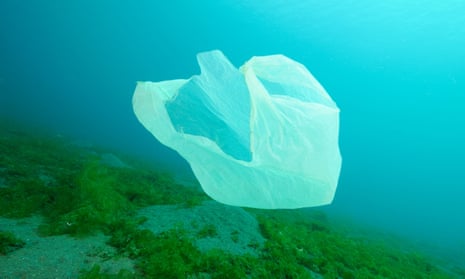
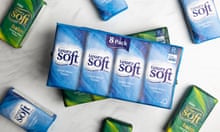

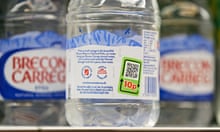

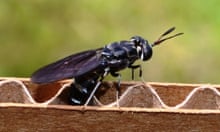

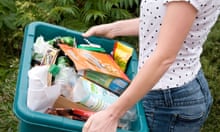
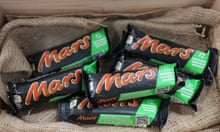
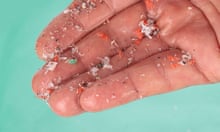
Comments (…)
Sign in or create your Guardian account to join the discussion